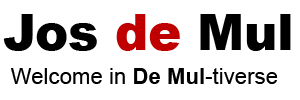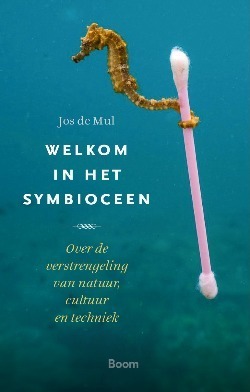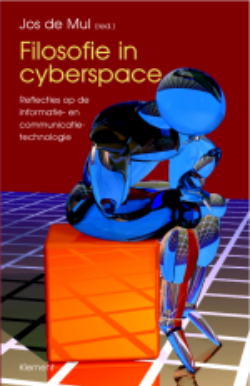Jos de Mul. Plessner and actual theories about embodied cognition. Invited lecture at the workshop The Future of Philosophical Anthropology, organized by Marcus Düwell and the Helmuth Plessner Gesellschaft. Utrecht: Utrecht University, November 29-December 1, 2018.
Helmuth Plessner’s Levels of Organic Life and the Human [Die Stufen des Organischen und der Mensch, 1928] is one of the founding texts of twentieth century philosophical anthropology (understood as philosophical reflection on the fundamental characteristics of the human lifeform). It is argued that Plessner’s work demonstrates the fundamental indispensability of the qualitative humanities vis-à-vis the naturalscientific study of man. Plessner’s non-reductionist, emergentist naturalism allots complementary roles to the causal and functional investigations of the life sciences and the phenomenological and hermeneutic interpretation of the phenomenon of life in its successive levels and stages. Within this context, human agency can be understood as a higher-order property of organic life, which act by the selective activation of lower-level psychophysical powers. Plessner’s three ‘anthropological laws’ are used to situate the notion of practical self-understanding in between two extremes: deterministic views that deny human freedom and responsibility and views that ascribe an unrealistic amount of autonomy to human beings.
Against this methodological background, in the third section I will elucidate Plessner’s non-dualist interpretation of the embodied, embedded, extended and enacted nature of the psychophysical unity of life. I will explain the key concepts ‘dual aspectivity,’ ‘boundary realization,’ and ‘positionality,’ and will describe and analyze the types of positionality of the successive lifeforms of plants, animals, and human beings. With regard to the human being, I will also point at the extended character of this lifeform. In addition, I will refer to recent work in the life sciences that underpin Plessner’s philosophy of nature and philosophical anthropology.
The Future of Philosophical Anthropology
Venue: Utrechts Centrum voor de Kunsten (UCK), Domplein 4, Utrecht (www.uck.nl)
Thursday, November 29, 2018 (Room: Torenzaal, UCK)
Program:
14.00 - 16.00 Jos de Mul (Rotterdam): Plessner and actual theories about embodied cognition
Hans-Peter Krüger (Potsdam): comment
Discussion
16.00 - 16.30 Coffee
16.30 - 18.30 Marcus Düwell (Utrecht): Ethics and philosophical anthropology
Volker Schürmann (Köln): Comment
Discussion
19.00 Dinner: Hofman Café, Janskerkhof 17a, Utrecht
Friday, November 30, 2018 (Room: 115, UCK)
9.00 - 11.00 Gesa Lindemann (Oldenburg): Plessner’s method of theory construction and empirical research
Anna Henkel (Lüneburg): Observing with Plessner. Analytical strategies for observations of interaction and society
Discussion
11.00 - 11.30 Coffee
11.30 - 12.30 Paul Ziche (Utrecht): Abstraktion und Einfühlung” – Abstract feelings in the history of anthropology
12.30 - 13.30 Lunch
13.30 - 15.30 Jan Vorstenbosch (Utrecht): Plessner, Scheler, Heidegger: the significance of the Interbellum debate on philosophical anthropology for its future.
Huib Ernste (Nijmegen): Plessner, on borders, difference and geography
15.30 - 16.00 Coffee
16.00 - 18.00 Joel Anderson (Utrecht): Transparency, Plasticity, and Niche Construction: Plessnerian Reflections on Extended Agency
Maarten Coolen (Amsterdam): Ontological Affirmation in Love: Merleau-Ponty and Plessner
18.00 - 19.00 General Assembly of the Helmuth Plessner Society
19.30 Dinner: Stadskasteel Oudaen, Oudegracht 99, Utrecht
Saturday, December 1, 2018 (Room: 115, UCK)
9.00 - 11.00 Carola Dietze (Jena): Plessner and the Discussion about the European Union
Katharina Block (Oldenburg): What would Plessner say to an Anthropocenist?
11.00 - 12.00 Final Discussion
2018-12-29 (Utrecht) Plessner and actual theories about embodied cognition
Typography
- Smaller Small Medium Big Bigger
- Default Helvetica Segoe Georgia Times
- Reading Mode









